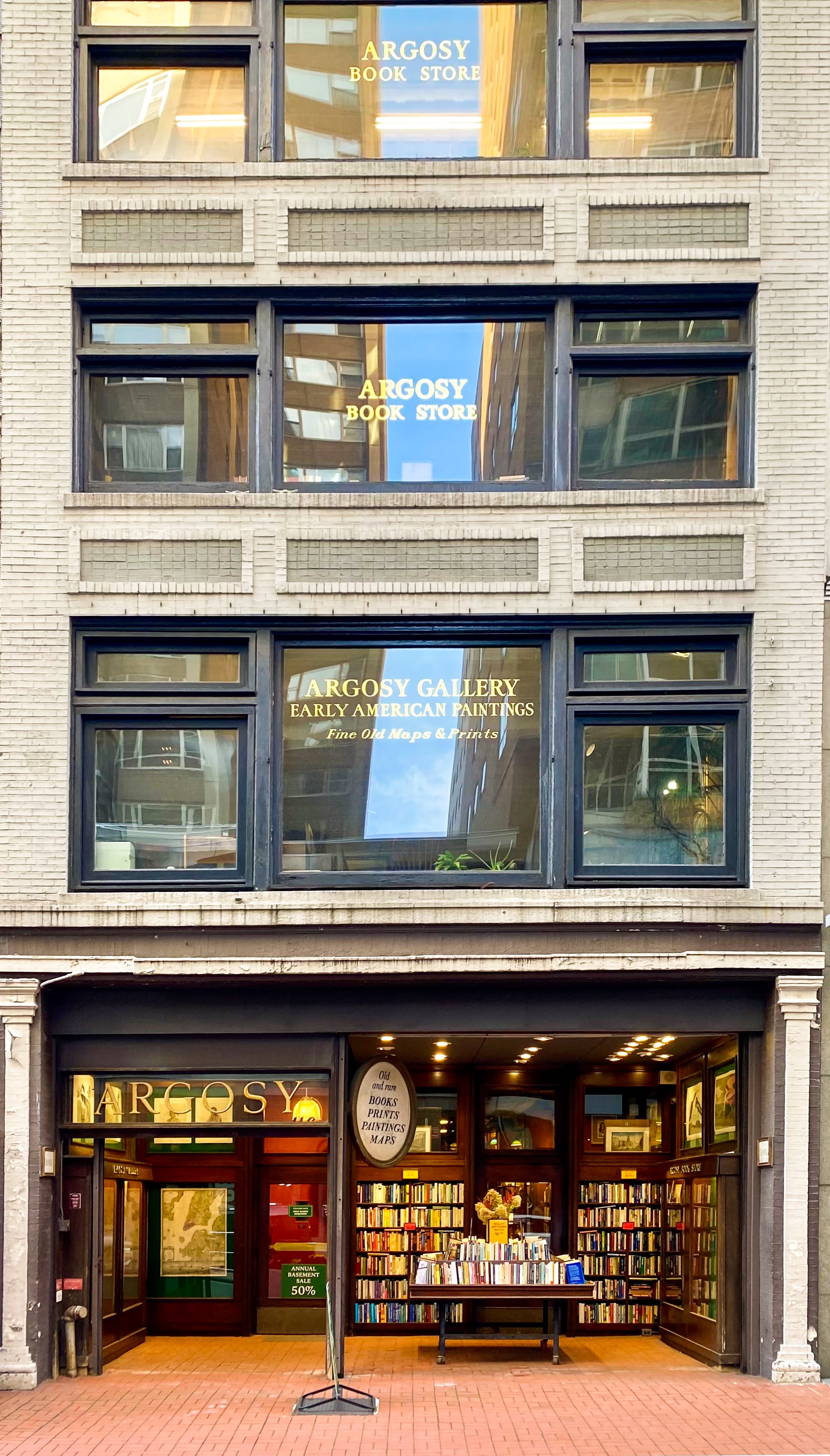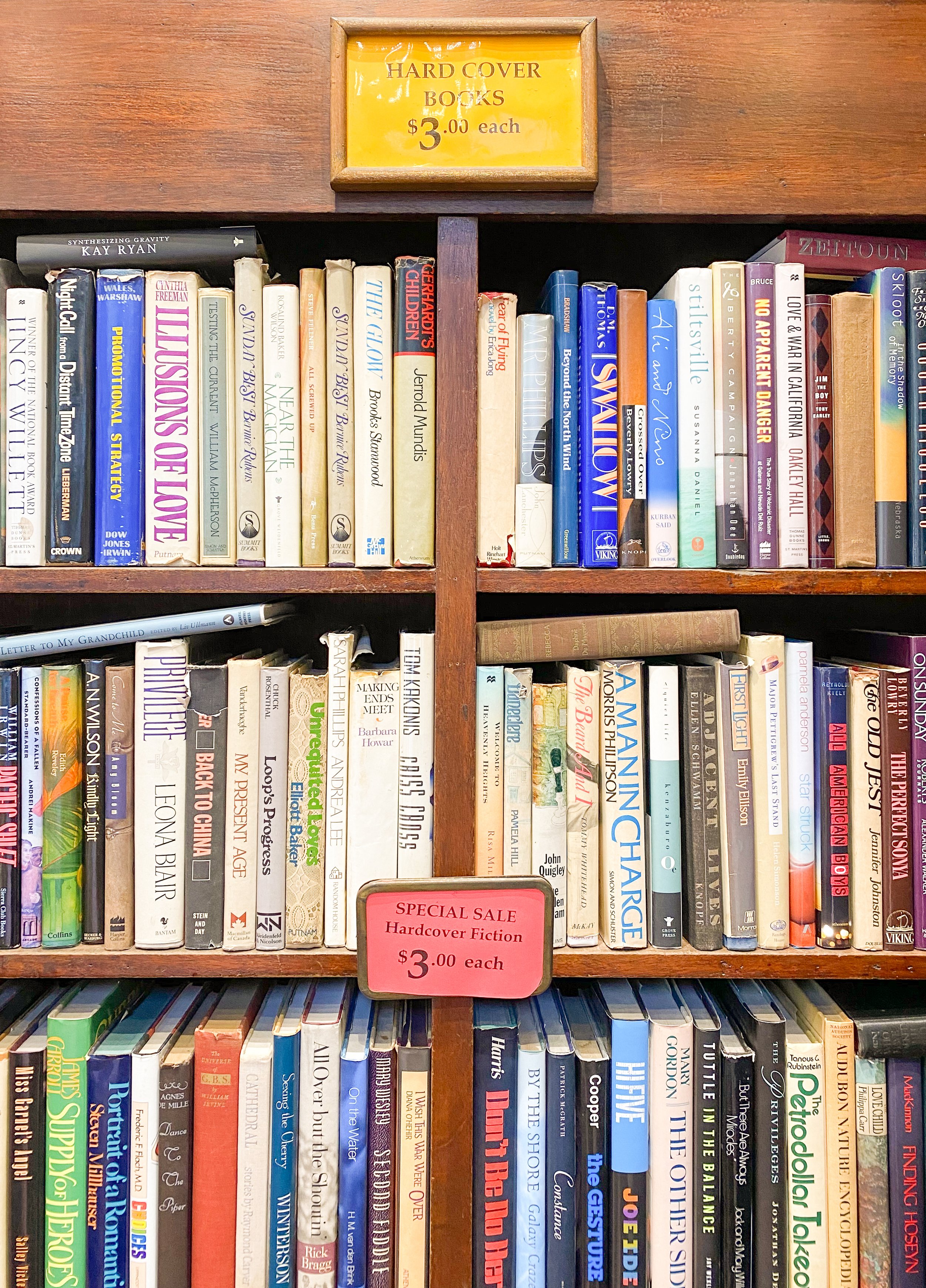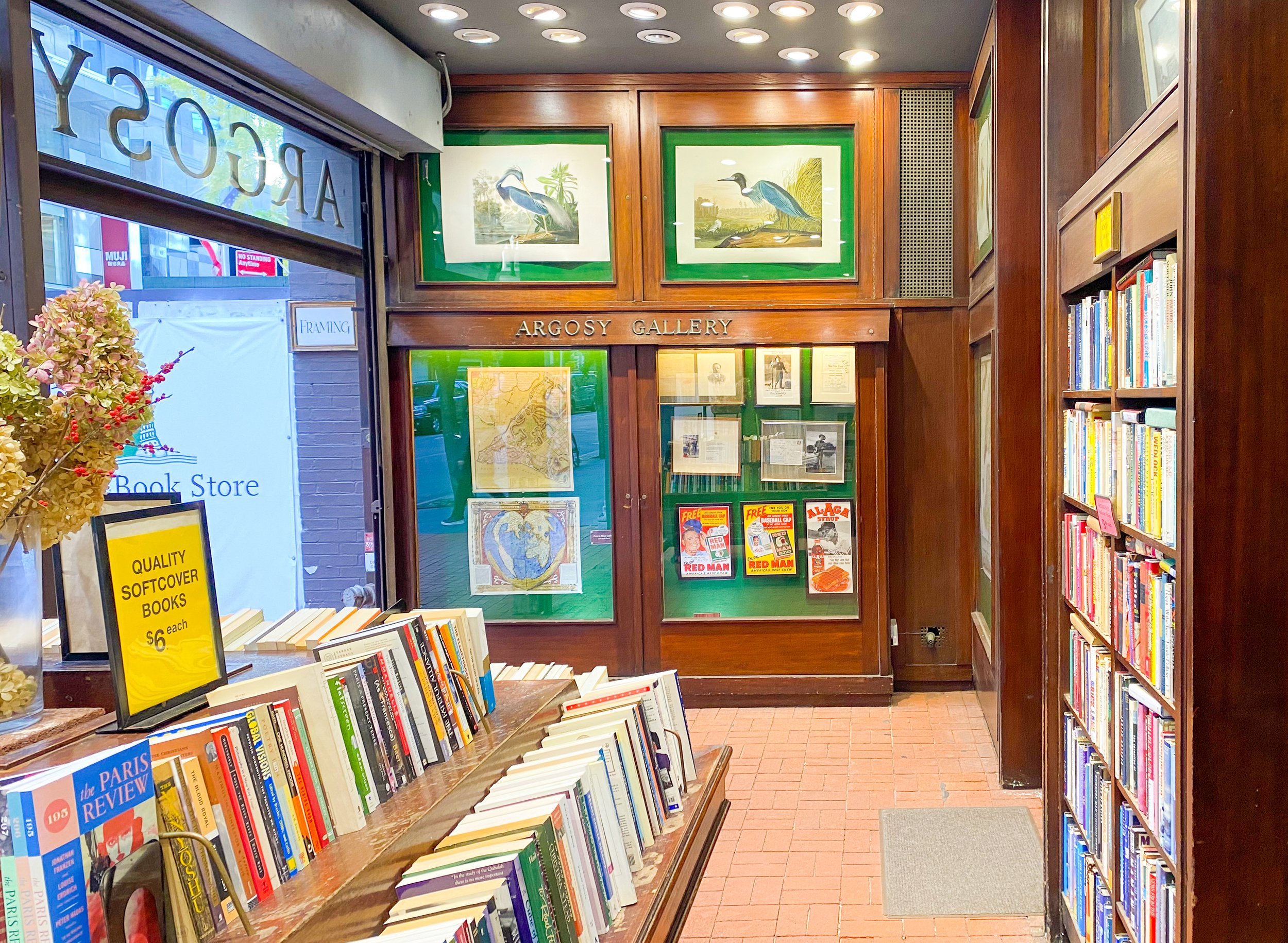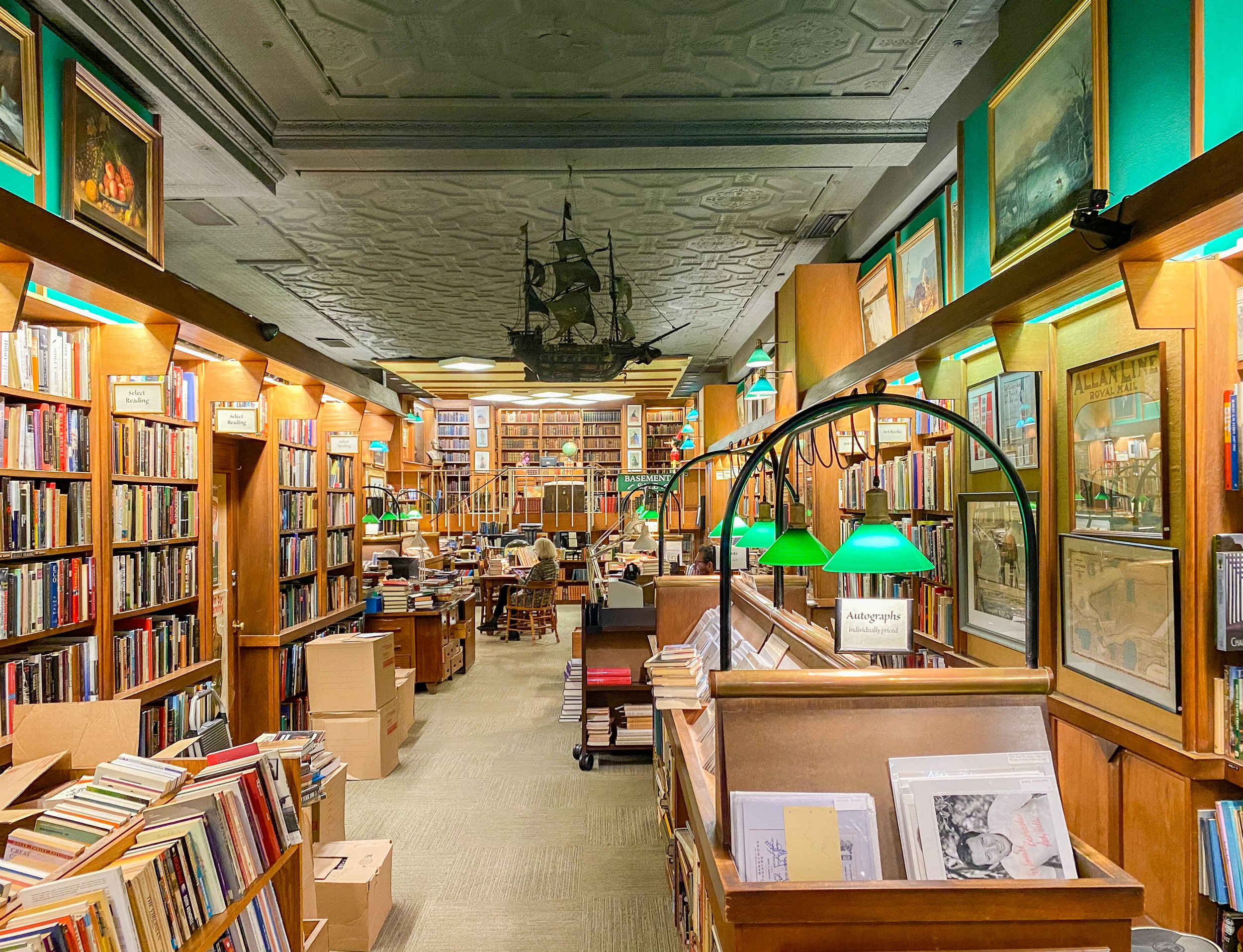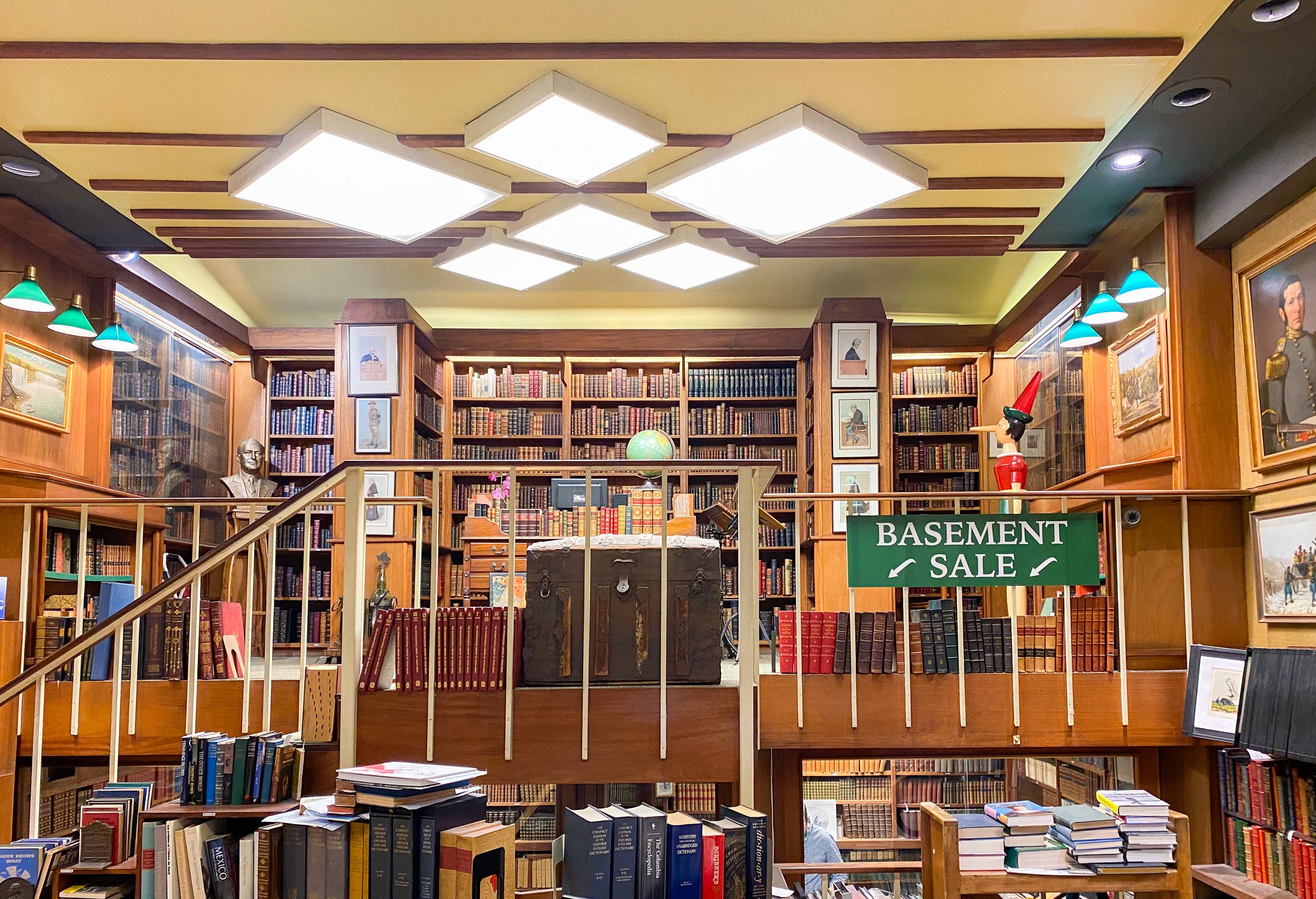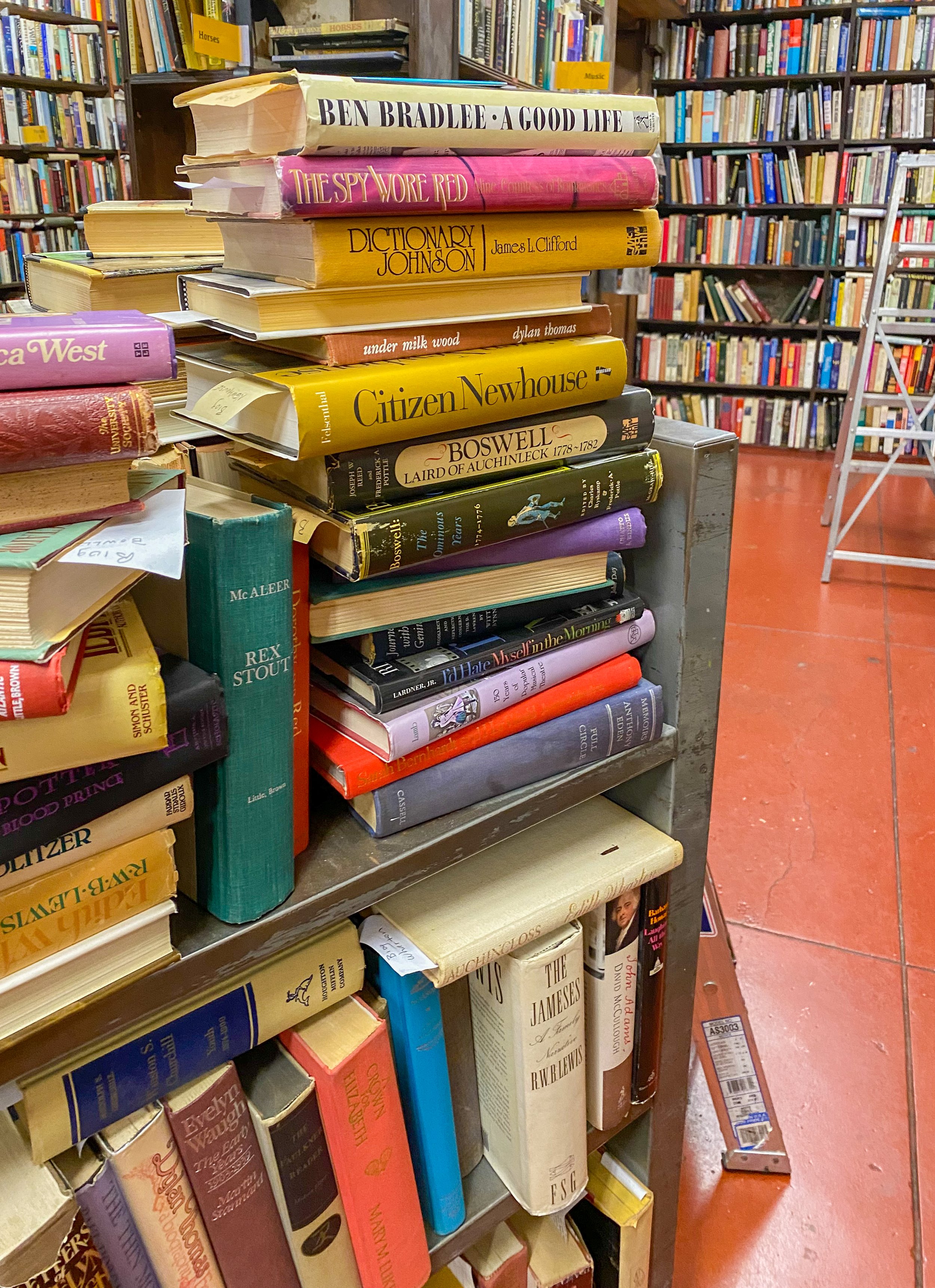Ambling Around Argosy Books
There’s a game I often play with my co-workers, particularly ON busy DAYs when the temptation to engage in a little ‘grass is greener’ daydreaming is overwhelming: “What, if money were no object, would you spend your tIME doing?”
It’s been interesting to hear everyone’s answers evolve over the years. At the height of hustle culture, my co-workers would talk about starting their own businesses, getting ‘in on the ground floor’ of a startup, or trading ad agency life for a tech company gig. Now, with pandemic-provoked burnout and late-capitalism ennui wearing down our collective ambitions, they talk about slowing down. Dedicating days to elaborate baking projects. Waking with the sun and surfing every morning. Moving upstate (or to another state entirely) to commune with nature.
I’m a little different. My answer then is the same as my answer now: I’d open a bookstore. And in a perfect world, it’d be a bookstore like Argosy Books – one smack-dab in the middle of the city and yet seemingly untethered from time, unencumbered by market dynamics, and unmarked by the hustle and bustle of its midtown surroundings.
Founded nearly 100 years ago, in 1925, Argosy is the city’s oldest independent bookseller – take that, Strand! – and is currently in its third generation of family ownership. First there was Louis Cohen, who named the store Argosy in part so that it would appear at the beginning of the bookstore section of phone books. Then came his three daughters – Judith, Naomi, and Adina – who inherited Argosy in the early 90s and have run different parts of its business for decades. Now, Judith’s son Ben works alongside his mom and aunts and will keep things going once they retire. It’s all – if this New Yorker profile is to be believed – fun, harmonious, and just begging to be turned into a movie or TV show.
Argosy, which occupies an entire six-story townhouse on East 59th Street, “stands alone on the block of massive structures, like a wildflower that has found a bit of soil in a crack in the pavement.” It’s also the closest bookstore to my new home on Roosevelt Island. A mere block-and-a-half from the tram, I can get from my apartment building to its front door in 20 minutes if I time things right. On tough work days when I feel the need for some solace, I often consider blocking an hour in my calendar for a quick pick-me-up poke around its outdoor sidewalk-sale tables, ground floor rare books section, and labyrinthian basement.
As someone who’s visited so many New York City bookstores that it can be hard to keep them straight, one thing I love about Argosy is how singular it is. It has none of the trendiness of McNally Jackson, little of the jam-packed buzz of Housing Works, barely a glimmer of Books are Magic’s literati cool. There’s no adjacent coffee shop, no giant reading room, and very little merch to buy, but there is something very special: an almost church-like reverence for books and their history. With its rows of leather-bound and gold-leafed rare books, askew oil paintings, and pendant versions of those classic emerald-hued banker’s lamps, Argosy is the platonic ideal of an old-school bookstore. And, in its own way, it’s as storied as the city’s more famous booksellers. It was, after all, Argosy that restored Bill Clinton’s book collection after it got damaged in a flood, Argosy that employed (and quickly fired) Patti Smith in the 60s, and Argosy – in the ultimate stamp of NYC institution-dom – that has appeared in several Law & Order episodes.
I was at Argosy most recently a few months ago, during the relatively-relaxed post-Delta, pre-Omicron period where it didn’t feel unwise to linger in bookstores (or anywhere, for that matter). I wandered aimlessly, heaved armfuls of books to a quiet corner to consider, and even flirted with a Ted Hughes first-edition before ultimately buying a bunch of basement finds instead. All the people around me – the sisters, the longtime employees, and even the customers – felt like they’d been there forever, gently circulating characters in a never-ending play. Argosy has outlasted real estate booms and busts, endless neighborhood evolutions, and even significant damage during Hurricane Sandy, all to remain, anachronistically, unchanged. In a city where nothing stays the same, it’s lovely when one thing does.

